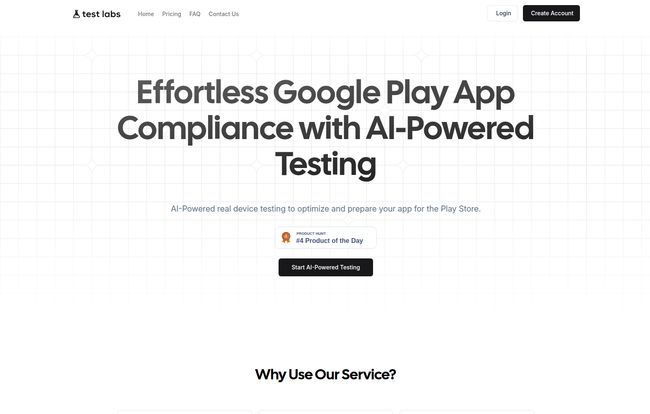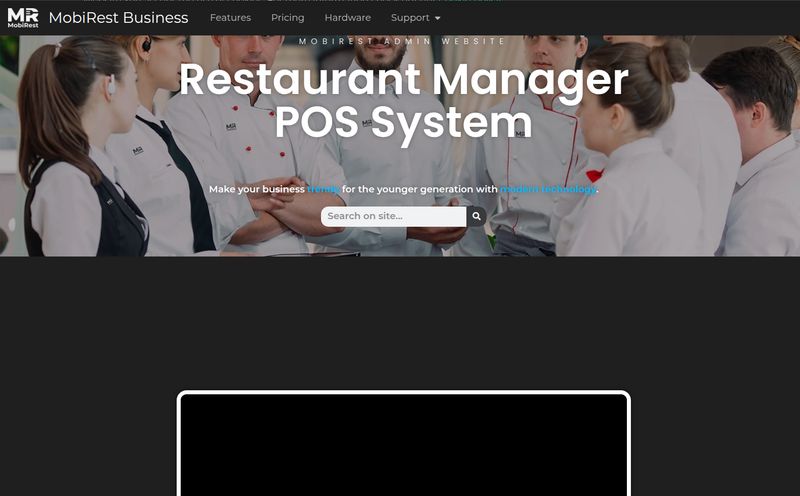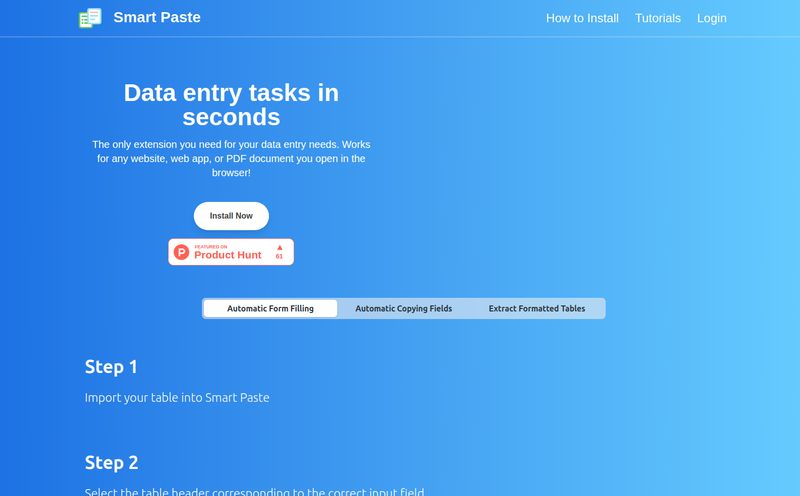Let’s have a frank chat. You, me, and the ever-present shadow of the Google Play Console. For years, I’ve worked with developers, from scrappy indie teams to established agencies, and there’s always a new hoop to jump through. The latest one? The infamous 20-tester policy for new personal developer accounts. When that news dropped, the collective groan from the dev community was almost audible.
Honestly, finding 20 people to actively test your app for 14 straight days is a logistical nightmare. It’s like herding cats... if the cats were all on different continents and had varying levels of tech-savviness. You beg friends, you bribe family, you post on obscure forums. It’s a huge time sink that pulls you away from what you should be doing: building a great app. So when a tool like TestLabs pops up on my radar, claiming to solve this exact problem, my professional curiosity gets the better of me. Is this the silver bullet, or just another overhyped platform?
First Off, What Is This Google Policy Everyone’s Freaking Out About?
Before we get into the solution, lets just quickly touch on the problem. Back in November 2023, Google updated its policy. If you have a new personal developer account, you now need to have at least 20 people opt-in to test your app and keep them opted-in for at least 14 consecutive days before you can even think about applying for production access (i.e., going live on the Play Store). You can read the nitty-gritty on their Play Console Help page. This is a massive hurdle, especially for solo developers and small startups who dont have a built-in QA team.
So, What Exactly is TestLabs?
Alright, enter TestLabs. In a nutshell, it’s an automated app testing platform built specifically to tackle this 20-tester compliance issue. The big sell is that it uses an AI-powered system to run your app on real, physical Android devices—not just emulators. This is a pretty big deal, because as any dev knows, emulators can lie. They don't always catch the weird, device-specific bugs that make users leave 1-star reviews.

Visit TestLabs
TestLabs automates the entire process. You upload your app, and it handles the testing across a fleet of devices, generating the logs and screenshots you need to prove to Google you’ve done your due diligence. It's essentially QA-as-a-service, designed to make your life easier and get your app approved faster.
How TestLabs Gets the Job Done
I appreciate a straightforward process, and thankfully, TestLabs doesn't overcomplicate things. It boils down to a simple, four-step flow.
A Super Simple Four-Step Process
The whole thing feels pretty intuitive. You sign up and upload your app (your APK or AAB file) to their secure platform. From there, their automated system kicks in. It distributes your app to their bank of real devices and starts the testing period. You can actually track the progress in real-time, which is a nice touch for those of us with control-freak tendencies. Once the required testing period is over, you have all the necessary artifacts to go and apply for Play Store approval. Simple as that.
The Magic of Real Device Testing
I want to circle back to the whole “real devices” thing because its important. Automated testing isn't new, but doing it on a wide array of actual phones is where the value is. This means you're getting feedback on how your app performs on different screen sizes, hardware configurations, and Android versions. The platform’s AI crawls through your app, mimicking user interactions, and documents everything—device logs, screenshots, the works. It’s a far more robust check than just running it on an emulator on your own machine.
The Good, The Bad, and The Code: My Honest Take
No tool is perfect, right? After digging through their site and features, here’s my breakdown of what stands out, for better or worse.
What I Really Liked
The time and cost savings are the most obvious wins. Building an in-house device lab is ridiculously expensive and a pain to maintain. TestLabs offers this for a fraction of the cost. The testimonials on their site, like one from a developer named Rajesh G. who calls it "Affordable and Reliable," seem to back this up. I was also pretty impressed by the promise of expert-driven insights. It’s not just about ticking a box for Google; it’s about getting actionable feedback to actually improve your app. The detailed reporting gives you clear visibility into what's happening, which is way better than just guessing. And the security aspect—knowing your app data is encrypted and handled safely—is crucial.
A Few Things to Keep in Mind
On the flip side, you are putting a lot of faith in an automated system. While AI is great, it might not catch every single weird edge-case bug that a creative (or clumsy) human tester might stumble upon. It’s a fantastic tool for meeting a specific compliance requirement, but I wouldn't call it a complete substitute for all forms of human-led user acceptance testing (UAT). Also, the pricing can be a factor depending on your needs, and you obviously need an internet connection to use the platform. Not a huge deal, but worth mentioning.
Let's Talk Money: TestLabs Pricing
Okay, the all-important question: what’s this gonna cost me? TestLabs has a tiered pricing structure that seems designed for different scales of need. It’s pretty clear and I appreciate the transparency.
| Plan | Price | Key Features |
|---|---|---|
| Trial | $0 | 1 Real Device, 3 Days of Testing, Automated Testing, Reports. A good way to kick the tires. |
| Basic | $19 | 5 Real Devices, 14 Days of Testing, Priority Support. Great for a single app launch. |
| Standard | $34 | 10 Real Devices, 14 Days of Testing. Better for small agencies. |
| Premium | $49 | 20 Real Devices, 14 Days of Testing. This is the sweet spot for meeting the policy head-on. |
| Play | $149 | 20 Real Devices, 14 Days of Testing, adds Game App Testing. Specifically for game developers. |
Honestly, the pricing feels very reasonable, especially when you consider the alternative cost in time and money. The Premium plan at $49 seems like the most direct solution to the 20-tester/14-day problem. Being able to solve that whole mess for less than fifty bucks? That sounds like a pretty good deal to me. And the free trial is a no-brainer to see if it fits your workflow.
Frequently Asked Questions about TestLabs
I've seen a few questions pop up, so let's tackle them head-on.
Is TestLabs safe to use with my app's source code?
Yes. You're uploading your compiled APK or AAB file, not your raw source code. The platform states they use advanced encryption and secure protocols to safeguard your app data, so it's a secure process.
Does this guarantee Google Play will approve my app?
Let's be realistic. TestLabs guarantees to help you meet the 20-tester/14-day requirement. It provides the proof you need for that specific policy. However, Google's final approval depends on many other factors, like your app's content, functionality, and adherence to all their other policies. This tool removes a major roadblock, but it's not a magic approval button.
How is this different from just using emulators?
The key difference is 'real vs. simulated'. Emulators are software that mimics phone hardware, but they can't replicate it perfectly. Testing on real devices, as TestLabs does, accounts for actual hardware variations, different OEM skins on Android, and performance quirks you'd never see on an emulator.
Can I use TestLabs for my iOS app?
Based on all the information available, TestLabs is laser-focused on solving the Google Play compliance issue. All the language, features, and policies mentioned are Android-specific. So, for now, it seems to be a tool for the Android developers out there.
What kind of reports do I actually get?
You get detailed reports that include device logs and testing screenshots. This is your evidence to show that the app was actively tested on a range of devices for the required duration.
Is the free trial actually useful?
I think so. While one device for three days won't meet the full policy, it’s more than enough to let you experience the platform's workflow, see the quality of the reports, and decide if you like the service before committing any money. It’s a proper test drive.
My Final Verdict on TestLabs
So, is TestLabs the hero we need? For developers stuck on the 20-tester island, my answer is a pretty resounding yes. It takes a frustrating, time-consuming, and ambiguous requirement and turns it into a simple, affordable, and automated step.
It’s not going to write your code or design your UI, but it removes one of the most annoying new pieces of administrative red tape in the app publishing process. It lets you get back to the work that matters. If you're a new developer gearing up to launch on Google Play, I’d say giving TestLabs a look isn't just a good idea—it might just be the most efficient and sane way to get your app over the finish line.
Reference and Sources
- TestLabs Official Website: https://testlabs.ai/
- TestLabs Pricing Page: https://testlabs.ai/pricing
- Google Play Console Help - New App Testing Requirements: https://support.google.com/googleplay/android-developer/answer/9845334?hl=en



